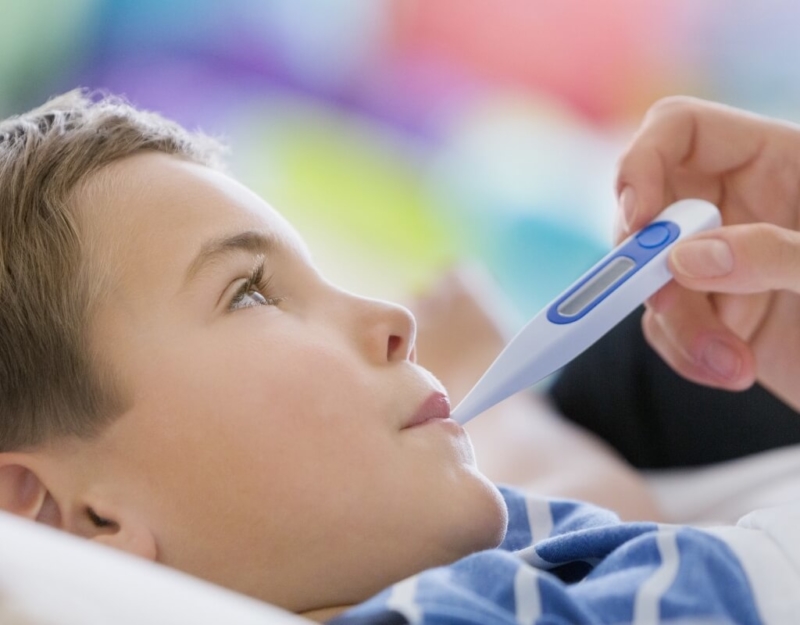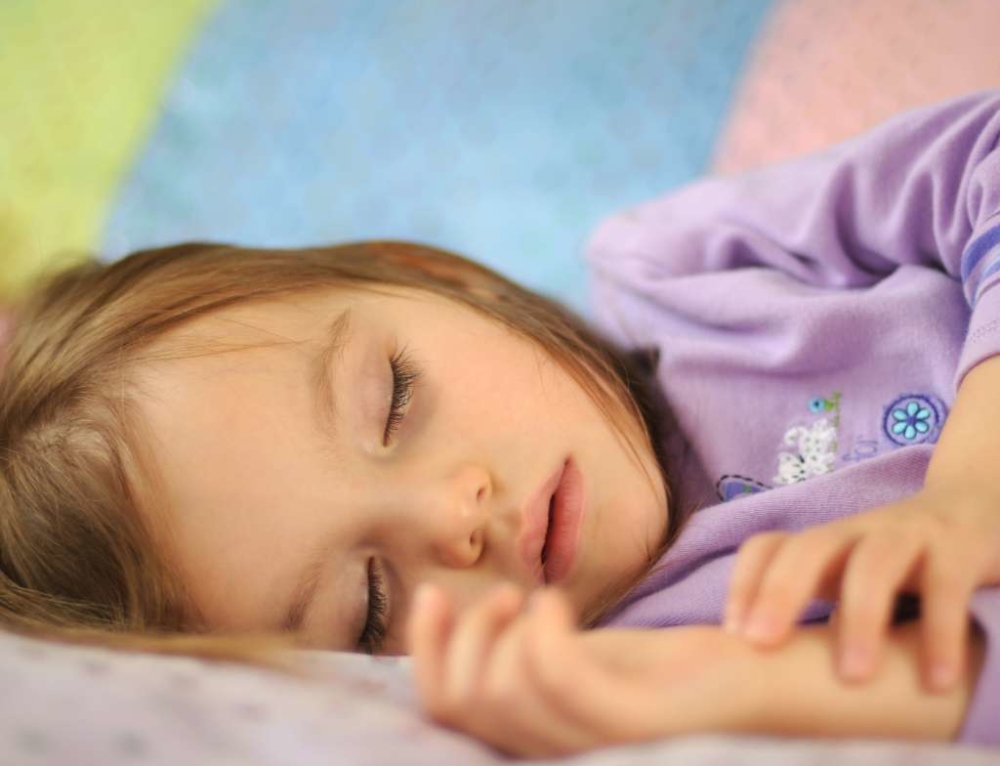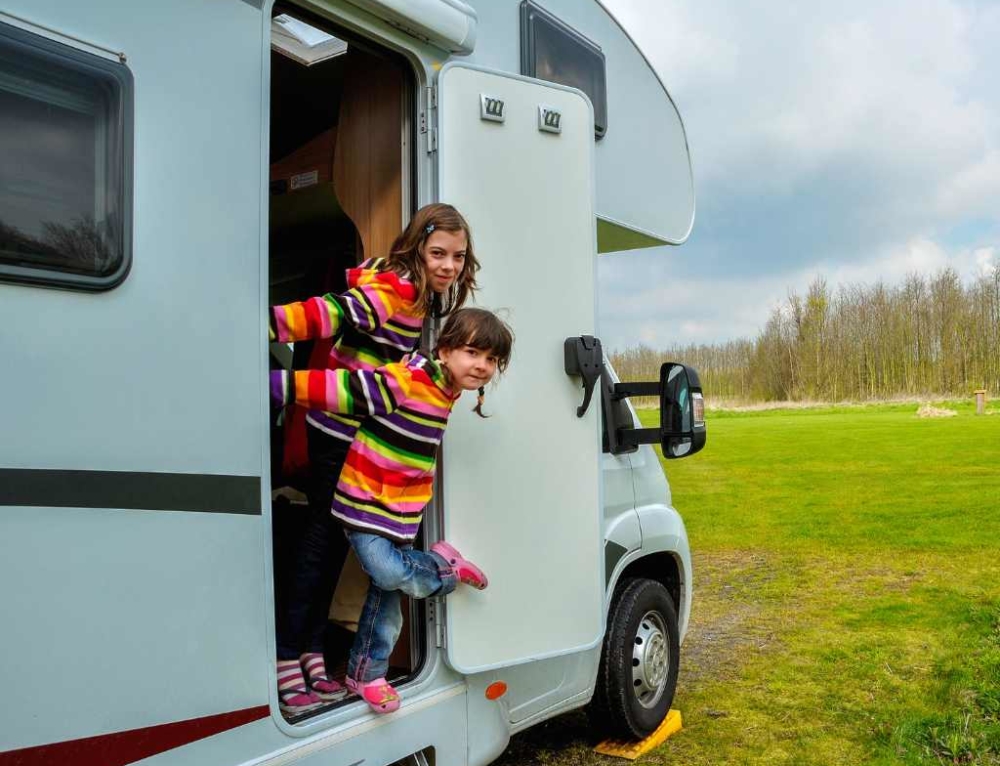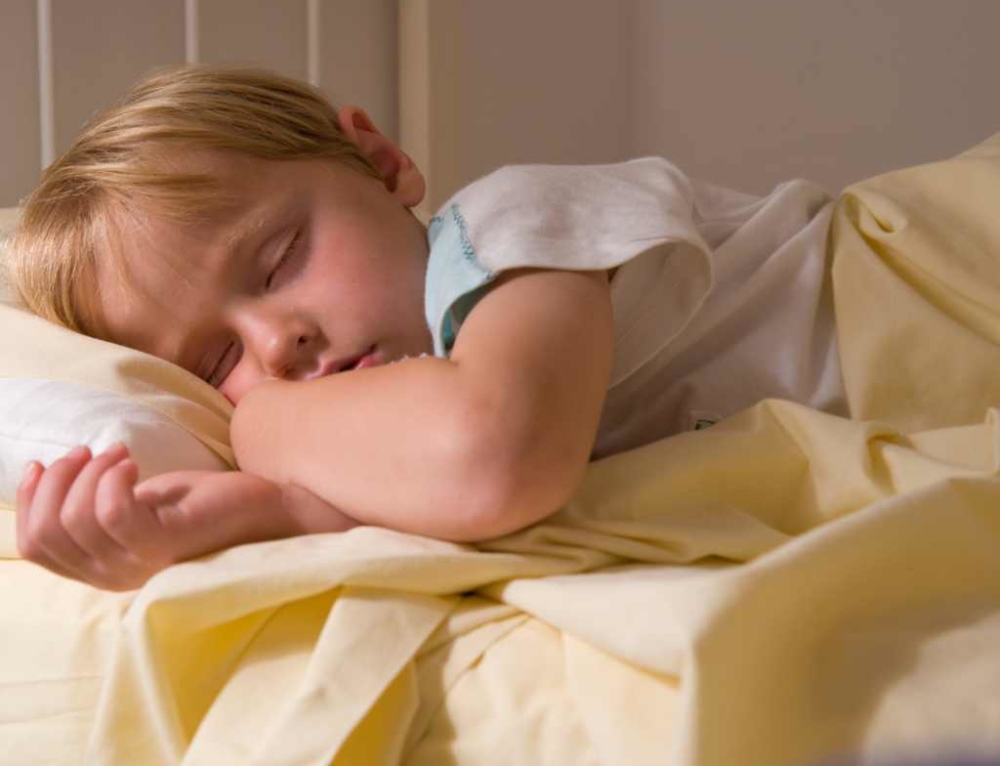A fever is when a person’s body temperature is above normal and is one of the body’s ways of signalling that something might be wrong.
It’s also one of the things that mums worry most about because it’s not always easy to understand what a high temperature means.
What is a fever?
Most children have an average at-rest body temperature of around 37°C. A child at play might have a slightly higher body temperature, and a child that is sleeping might have a slightly lower body temperature. But, in general, ‘normal’ body temperature is right around 37°C.
A child is said to have a fever whenever their body temperature goes over 38°C. A fever that is between 38°C and 38.9°C is called a mild fever. You might notice your child has flushed cheeks and is maybe less active.
A fever that is 39°C to 39.9°C is called a high-grade fever. Your child will likely have flushed cheeks, feel hot when you touch them and be a bit off colour and fussy.
Because young children have less control over their body temperature, rapid rises in temperature when they are unwell is not uncommon. While temperatures of 40° are very high and extremely unusual in adults, they are not uncommon in sick children. With a very high fever your child will feel very hot, will be fussy and will not be interested in food or drink. They will probably be lethargic and possibly sleepy.
What causes fever?
Fevers happen when the body turns its thermostat up to fight infection. Almost like we use heat to kill germs, some scientists believe that the body turns up the heat to kill germs that get into the body. A fever is not an illness, but is a symptom that something in the body isn’t quite right. In addition to infections, fevers can result when your child is overheated and after your child receives an immunisation.
Are fevers serious?
Most fevers are not serious and will go away in a day or two. Knowing when a fever might be serious means understanding why your child has a fever and assessing his or her other symptoms. But, regardless of what causes the fever, high fevers, especially in very young children, are serious and should be treated immediately.
How do I treat a fever?
Because fevers actually serve a biological purpose, they don’t really need to be treated unless they are very high. Most of the time, we treat low-grade fevers because they can make kids uncomfortable and cranky. If your child has a low-grade fever but he is still playing, eating and drinking as usual, there’s really no need to do anything other than monitor your child’s temperature every few hours.
Higher fevers may require some treatment, if only to make your child more comfortable. Make sure your child gets plenty of fluids and lots of rest. Try to encourage your child to drink a glass of water an hour. If his fever continues to rise, you might want to consider an age-appropriate analgesic like paracetamol or ibuprofen, but consult your doctor if it’s the first time you’ve given your child medications or if your child is under 12 months old. Always read the label, follow the instructions and ensure that the correct dosage is administered.
Use sound judgment in regard to room temperature and blankets. A child with a fever does not need to ‘sweat it out.’ If your child is too hot, remove a blanket or use light blankets. If your child is shivering, put on another blanket only until the shivering stops, then take the additional blanket off. Keep the room temperature comfortable, but not too hot or too cold.
Sometimes a lukewarm bath or sponge bath will help cool your child down and make them more comfortable. Don’t use cold water or put ice in the bath, since that can cause shivering and actually raise the body temperature.
Never give your child aspirin to treat a fever. Aspirin has been linked to Reye’s syndrome, a serious and life-threatening illness.
Febrile convulsions
Young children with high temperatures can experience febrile convulsions as a result of a sudden spike in their body temperature. Febrile convulsions are fits that occur during a brief moment of unconsciousness. Febrile convulsion is due to the rapid change in body temperature rather than the actual temperature itself.
Should I call the doctor*?
If your baby under three months has even a mild fever, call a doctor right away.
For children from three to six months with a fever over 39°C they need to see a doctor. If they have a fever that goes away for more than 24 hours and then returns, you should also see a doctor.
For older children, if their fever is under 40°C, and you can control it at home using the treatments described above, and they don’t seem really unwell, they don’t always need to see a doctor (during the current COVID-19 pandemic they must be referred to a doctor – see notes below). However if the fever persists, or they seem really miserable, or you are worried, see a doctor.
If your child experiences febrile convulsions, consult your doctor.
See a doctor or the emergency department immediately if your child’s fever is accompanied by any of the following symptoms:
- A temperature over 40°C
- A fever is still resent after 3 days (for children over three months – if your child is under three months and has a fever seek medical help)
- Earache
- Headache that does not improve with painkillers
- Stiff neck (cannot put their chin on their chest or it hurts when putting their head forward)
- Trouble swallowing or a sore throat
- Rash
- Abnormal breathing
- Vomiting
- Passing little, or no, urine
- Extreme drowsiness/sleepiness
- Are floppy or have leg pain
- Bulging fontanelle (the baby’s “soft spot”)
- Hallucinations
- Signs of dehydration i.e. a dry mouth and no tears, sunken eyes, or their skin doesn’t relax back when pinched
*If your child is sick, keep them at home
Due to the current pandemic, any sore throat, or fever needs to be referred to your doctor for testing. The likelihood of your child contracting COVID-19 is small but we must all work together to keep it that way. If your child is sick, notify the daycare or school, keep them at home, and contact your health professional.







Hate fevers coz it’s just a symptom and sometimes you really can’t tell what’s going on. A lot of things could cause fever. Had a friend who went to a GP and told her that sponge baths don’t work and just keep cool and make sure not to put too many layers. As adults we tend to bundle up when we feel feverish, but kids need to keep cool.
For my kids if they seem hot or complain about feeling unwell, I take their temperature. I know what is a usual range for them. If it’s just low grade temp then usually we use ibprofen to lower temperatures. If it’s not going away, off to the Dr. I learnt early on that firstly the Dr is free for the young ones, so best not to delay 👍 and also that a temperature usually means something, especially if it’s ongoing. One Dr told me that if the temperature goes passed 39 you should see a Dr to rule out infection and other things.
Gosh I actually didn’t really know why children get fevers I’ve always assumed it happens because they have a cold and treat with nurophen every four hours…. I didn’t release that this may it evwn be necessary if their still happily eating and drinking… So glad I read this article has given me some insight and some better tips to use like a like warm bath or sponge rather than drugging them up… Because my boys don’t get fevers very often at all evwn after their shots fevers have always freaked me right out.
I always check for fever when my kids say they feel sick and when my son gets to 40 which can be often it’s usually an ear infection it gets very scary at that temp when Panadol alone does not work until you get antibiotics to kick in. We have lots of temps in our house and a couple of hospital admissions to try get fluid into them. We have also tried lukewarm baths but they don’t like it when so sick.
My 5 year old has had her fair share of fevers, generally I don’t do a lot but give her plenty of fluids and rest (where possible lol). She did have a 40 degree temperature last year and ended up in ED delirious and babbling, pretty scary! She had some horrible viral thing but got some fluids via IV and other medicines and came right relatively quickly